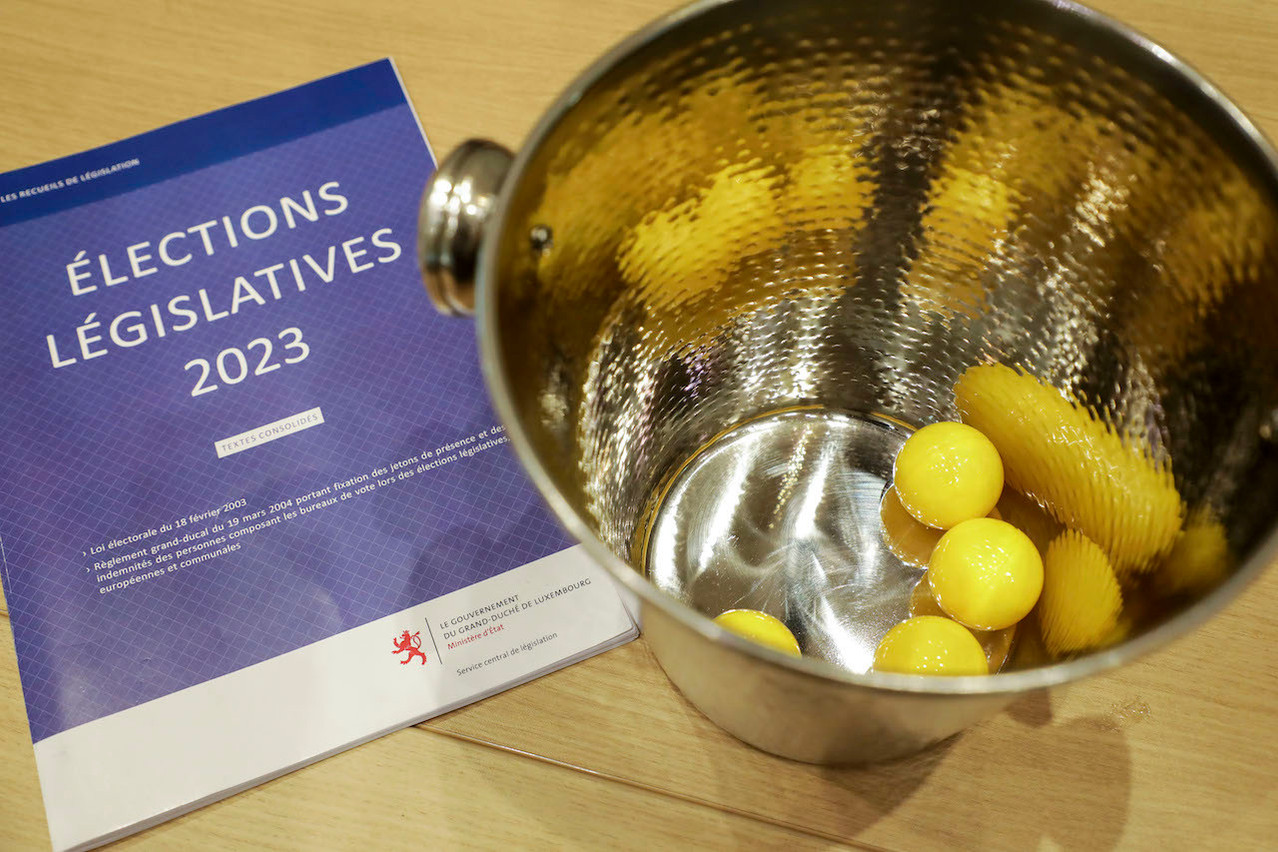On 10 August, Pierre Calmes, president of the District Court in Luxembourg, drew lots to allocate numbers to each list of candidates. The draw was only partial, limited to those parties that had been newly introduced for the municipal elections. There were four in all: dei Konservativ – d'Fräiheetspartei; the KPL; Liberté – Fräiheet!; and Volt. Of the parties represented at the local elections and which will keep their numbers, only one is missing, list 8: Mir d’Vollek.
Here is the numbering of the official lists for the parliamentary elections:
Following the draw on 10 August, lists 10 to 13 have been added: Volt (lists for the eastern and southern constituencies); KPL (lists for the central, eastern and southern constituencies); Liberté – Fräiheet!; and déi Konservativ – d’Fräiheetspartei (lists for the northern and southern constituencies).
Two newcomers in the legislative battle
Two parties are making their appearance on the scene. Liberté – Fräiheet! is the movement after he left the ADR, on whose land he will be hunting. This does not worry Fred Keup, head of the party’s national list, who told Delano’s sister publication Paperjam that Roy Reding’s departure had not caused any resignations or activists to leave.
Volt defines itself as a pan-European party committed to parliamentary democracy, a sustainable economy and inclusion. The party has already stood in the 2019 European elections, when it obtained 26,483 votes and was not elected. The party will field candidates in the south and east.
With the exception of the ADR in 1989, no party standing for the first time in the parliamentary elections has ever seen one of its candidates elected. This was the case in 2018 for the dei Konservativ party, freshly founded by Joe Thein--another expelled ADR member--which ran in the south constituency and received 9,516 votes (0.52%).
This article was first published in French on . It has been translated and edited for Delano.
